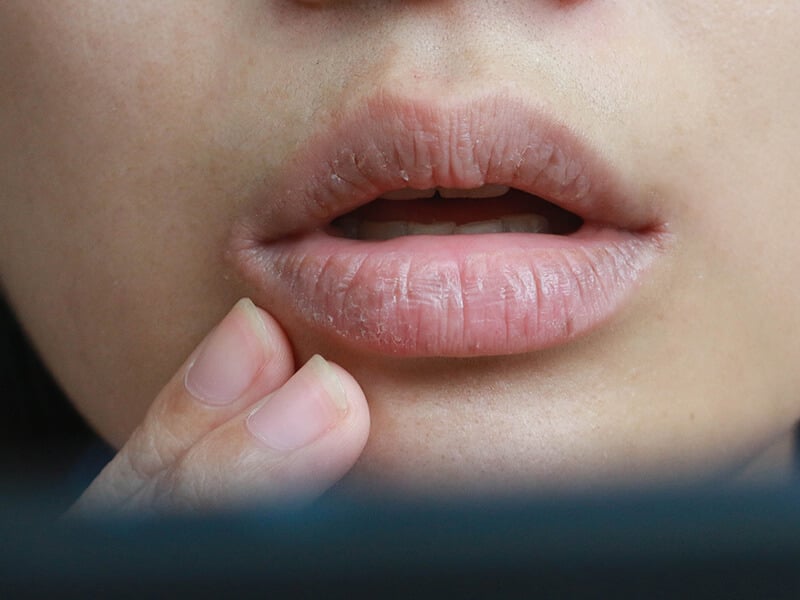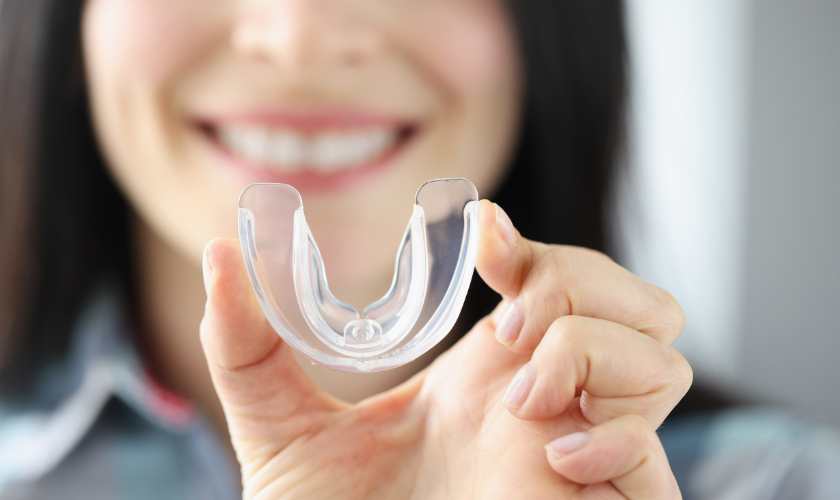
Introduction to Child Dental Care
The foundation of child dental care is early and consistent attention to oral hygiene, which includes regular dental check-ups, appropriate oral hygiene practices, a balanced diet, and preventive measures against injuries and tooth decay. Primary teeth, commonly referred to as baby teeth, play a crucial role in a child’s development, affecting their ability to chew, speak, and smile confidently. Moreover, these teeth are placeholders for permanent teeth, making their care crucial for the child’s future oral health
Early Dental Visits and Routine Check-Ups
The Australian Dental Association (ADA) recommends that children have their first dental examination by the time their first tooth appears or by their first birthday. Continued regular visits to the dentist are essential for maintaining good oral health and identifying any developmental issues early on. These visits can also instill a positive attitude toward dental care in children, setting them up for a lifetime of healthy habits
Brushing and Flossing: Techniques and Timing
From the eruption of the first tooth until around 17 months, the teeth should be cleaned by an adult, and low-fluoride toothpaste should be introduced at 18 months, with supervision to ensure it is not swallowed. By the age of 8 or 9, most children can begin brushing and flossing with less supervision, as their dexterity improves.
Nutritional Guidelines for Oral Health
Diet plays a pivotal role in dental health. Limiting sugary foods and drinks is crucial, as sugar is a primary factor in tooth decay. Tooth-friendly snacks like fresh fruit, carrot and celery sticks, and hard cheese are recommended. Encouraging children to drink water and milk instead of sugary or acidic drinks can greatly reduce the risk of tooth decay and erosion.
Addressing Dental Emergencies and Habits
Parents should be vigilant about habits like teeth grinding or snoring, as they could indicate underlying issues that need to be addressed by a dentist. In the event of dental trauma, such as a knocked-out tooth, prompt action and immediate dental consultation are crucial to manage the situation effectively.
Government Support for Child Dental Care
The Child Dental Benefits Schedule (CDBS) is a program that provides access to dental care for eligible children aged 1 to 17, including examinations, cleans, fillings, and extractions, to ensure that all children, regardless of their family’s financial status, can receive proper dental care
Conclusion
A multifaceted approach involving regular dental visits, proper brushing and flossing, a balanced diet, and awareness of dental emergencies form the cornerstone of child dental care. It is our collective responsibility as caregivers and health professionals to provide the best start for our children’s oral health, ensuring they grow up with strong, healthy teeth and the confidence that comes with a bright smile.
At Dentists In Annerley, QLD, Australia, we pride ourselves on setting the highest standard of patient care, ensuring an experience that fuses comfort with unmatched dental health services. Our clinic acts as an oasis for advanced periodontal treatments, performed with precision and a delicate touch to guarantee the best oral health outcomes for our patients. Centrally located for Annerley residents and those from surrounding suburbs, we invite individuals from Woolloongabba, Greenslopes, Fairfield, Yeronga, Moorooka, Tarragindi, Holland Park, West End, Highgate Hill, Dutton Park, Coorparoo, Carina Heights, Mount Gravatt, East Brisbane, and Stones Corner to partake in exceptional dental care. Our dedication to oral health is solid, with a personalized approach to periodontal care that is aimed at enhancing both the resilience and aesthetics of our patients’ smiles.
In the bustling environment of Annerley and its nearby areas, Dentists In Annerley emerges as a haven of dental health and well-being. We address a broad range of dental needs, from routine examinations and cleanings to emergency dental treatments, all the while utilizing modern CEREC technology for immediate ceramic restorations. Our broad suite of services spans root canal therapies, wisdom tooth extractions, and the creation of tailored veneers, crowns, and implants, in addition to specializing in periodontics, pediatric dentistry, and orthodontic aligners. Our facility is equipped with contemporary X-ray machinery, ensuring an expedient and accurate diagnostic and treatment journey. We have meticulously designed every aspect of our practice to optimize the efficiency, thoroughness, and comfort of your visit.
The guiding principle at Dentists In Annerley is the belief that exemplary dental care should be within reach for everyone. We are committed to offering a comprehensive variety of dental services that cater to the varied dental concerns of our patients. From preventive maintenance to the craftsmanship of cosmetic dentistry, and the detailed care required for complex dental treatments, our team at Dentists In Annerley is steadfast in their quest for dental excellence. This dedication is apparent in our gentle demeanor and the detailed attention we apply in each treatment, ensuring every patient leaves with a smile that is as radiant in appearance as it is in health.
Frequently Ask Questions
At what age should my child first visit the dentist?
The Australian Dental Association (ADA) recommends that a child’s first dental visit should be when the first tooth appears or by their first birthday. This early visit is crucial for checking the development of the child’s mouth and to provide parents with advice on how to care for their child’s teeth
How often should children have dental check-ups?
After the first visit, the dentist will advise on how often your child should return for check-ups. Generally, this is every 6-12 months, but the frequency can vary based on the individual needs of the child.
Why are baby teeth important if they're going to fall out anyway?
Baby teeth are essential for a child’s development. They help with proper chewing, learning to speak clearly, and contribute to facial structure. They also hold space for permanent teeth, guiding them into the correct position. Ensuring good health of baby teeth is vital for the overall oral health of a child.
What should I use to clean my baby's teeth?
Initially, before the teeth erupt, you can clean your baby’s gums with a soft, damp cloth. Once the teeth appear, you can use a small, soft toothbrush designed for infants. Your dentist can provide further advice tailored to your child’s needs.
When should I start using fluoride toothpaste for my child?
In Australia, it is recommended to start using low-fluoride toothpaste from around 18 months of age. Only a pea-sized amount is needed, and children should be supervised to ensure they do not swallow the toothpaste.
How can I make brushing teeth fun for my child?
You can make brushing teeth more engaging by playing a song, using a toothbrush with their favorite characters, or turning it into a game. Positive reinforcement, like praising your child for a good job, can also encourage them to maintain good oral hygiene habits.
Is it safe for children to use powered toothbrushes?
Yes, powered toothbrushes can be safe for children and even make brushing more effective and enjoyable. However, it’s important to choose a brush suitable for your child’s age and to supervise their brushing to ensure they’re using it correctly.
At what age should children start flossing?
Flossing can begin when a child has two teeth that touch. This typically starts around the age of two or three. As with brushing, parents should assist their children with flossing until they have the dexterity to do it on their own, usually around the age of 8 or 9.
How do I teach my child to brush and floss properly?
Demonstrate the process and guide your child’s hand so they can feel the correct movement. Use a mirror so they can see what they are doing, and teach them to use gentle, circular motions for brushing. For flossing, show them how to wrap the floss around their fingers and gently slide it between their teeth.
Can poor oral hygiene in children affect their general health?
Yes, poor oral hygiene can lead to dental problems like cavities and gum disease, which in turn can affect a child’s general health. Oral health issues can impact a child’s ability to eat and sleep properly and may contribute to other health issues outside of the mouth.
What are the signs of tooth decay in children?
Signs of tooth decay in children can include white, brown, or black spots on the teeth that don’t brush away. If such spots are observed, it’s recommended to make an appointment with a dentist for a proper check-up.
How can diet affect my child's oral health?
A child’s diet is critical to their oral health. Limiting sugary foods and drinks is essential, as sugar is a major contributor to tooth decay. Instead, encourage tooth-friendly choices such as water, milk, carrot or celery sticks, cheese, and fresh fruit.
What are tooth-friendly snacks for children?
Tooth-friendly snacks include carrot or celery sticks, cheese, and fresh fruit. Preparing meals and snacks from scratch can help reduce sugar intake, and if sweet treats are given, it’s best to include them during main meal times to limit between-meal snacking.
How does sugar in the diet contribute to tooth decay?
Sugar in the diet contributes to tooth decay by feeding the bacteria in plaque, which produces acids that erode tooth enamel and can lead to cavities. It’s not only obvious sweets like candies and cakes but also hidden sugars in processed foods like cereals and flavored yogurts that are problematic.
What should I do if my child's baby tooth is knocked out?
If a child’s baby tooth is knocked out, do not attempt to reinsert it, as this could damage the developing permanent tooth underneath. Instead, visit a dentist as soon as possible to assess any further damage and receive appropriate care.
Are dental X-rays safe for children?
Dental X-rays are considered safe for children and are used judiciously by dentists to diagnose and monitor oral health conditions. Modern dental X-ray machines emit very low levels of radiation and are often necessary for a complete oral health assessment.
How can I help my child overcome fear of the dentist?
Helping a child overcome fear of the dentist can involve positive reinforcement, explaining dental procedures in child-friendly terms, and perhaps visiting the dental office for a non-treatment visit to familiarize the child with the environment
What is the Child Dental Benefits Schedule?
The Child Dental Benefits Schedule (CDBS) is an Australian government program providing financial support for basic dental services for eligible children aged 2-17, helping to cover costs for examinations, cleanings, x-rays, fillings, and extractions.
How can I check if my child is eligible for the CDBS?
Eligibility for the CDBS can be checked by calling Medicare, using your Medicare online account through MyGov, or by asking your dental practitioner.
What treatments are covered under the CDBS?
The CDBS covers a range of dental services including examinations, cleanings, x-rays, fillings, root canals, and extractions, but it does not cover orthodontic, cosmetic dental work, or services provided in a hospital.
What are the effects of thumb sucking on my child's teeth?
Thumb sucking is a common habit in infants and young children. It can provide comfort and security; however, if it becomes a long-term habit, it can lead to dental problems such as misalignment of the teeth, changes in the roof of the mouth, and speech problems. Prolonged thumb sucking can cause an overbite, where the front teeth protrude, an open bite where the front teeth don’t meet when the mouth is closed, and potentially a lisp due to mispositioned teeth affecting speech sound formation.
How can I help my child stop thumb sucking?
Helping a child stop thumb sucking involves encouragement and support. You can use positive reinforcement, like praise or rewards, for not sucking their thumb. Distractions, such as giving them a toy or engaging in activities that keep their hands busy, can also be helpful. For some children, wearing a glove or adhesive bandage can serve as a reminder. If these methods don’t work, you may consider consulting with a pediatric dentist or orthodontist, and in some cases, there are bitter-tasting solutions that can be applied to the thumb.
What are the effects of teeth grinding in children?
Teeth grinding, or bruxism, is when children grind or clench their teeth outside of normal chewing movements. It can lead to teeth wearing down and potential damage to the teeth and jaw joints. Signs and symptoms include fractured or chipped teeth, headache, sore jaws, sensitivity in teeth, and temporomandibular disorders (TMD)
What causes teeth grinding in children?
The exact causes of teeth grinding can vary but are often linked to stress and anxiety. Other contributing factors can include alcohol and caffeine consumption, smoking, snoring, obstructive sleep apnoea, and certain medications like antidepressants and stimulants.
How is teeth grinding in children treated?
Managing teeth grinding in children may not always require treatment, but when it does, it involves removing the cause where possible and repairing any damaged teeth with fillings or crowns. In some cases, an occlusal splint may be recommended to protect the teeth during sleep and relieve muscle and jaw joint discomfort associated with grinding
Are there any long-term effects of teeth grinding?
Long-term effects of teeth grinding can include significant wear and tear on the teeth, leading to sensitivity and an increased risk of cavities and tooth fractures. It can also contribute to TMD and may affect the overall appearance of the smile. Early treatment is essential to prevent these complications.
What is dental fluorosis and how does it affect children?
Dental fluorosis is a cosmetic condition that occurs when children consume too much fluoride while their teeth are developing. It manifests as white lines or flecks on the surface of the teeth. In Australia, it usually occurs in mild forms and can lessen over time with no negative impact on oral health or appearance.
How do pacifiers affect my child's teeth?
Like thumb sucking, prolonged pacifier use can lead to dental problems such as open bites, overbites, and general misalignment of teeth. It can also potentially affect speech development if used during key stages of language development.
How can I manage my child's pacifier use?
To manage pacifier use, it’s recommended to limit its usage after the age of six months and avoid it beyond two years to prevent potential dental issues. Gradual weaning and choosing orthodontic pacifiers designed to minimize dental impact can also be helpful strategies.
Are there any special considerations for children with braces when it comes to dental care?
Children with braces require extra attention to dental care. They should avoid hard and sticky foods that can damage the braces. Proper brushing and flossing techniques are crucial to remove food particles and plaque from around the brackets and wires. Regular dental check-ups are necessary to ensure the braces are functioning correctly and to adjust them as needed. It’s also essential for children with braces to protect their mouth during sports by using a mouthguard. For more specific information, consulting with an orthodontist is recommended as they can provide tailored advice for the child’s needs.
Latest Posts
What are the best dental care tips for seniors?
Dental care for seniors is crucial for their overall health and well-being. As we get older, our teeth and gums might…
How can you prepare for dental surgery?
Preparing for dental surgery is a key step to making sure you’re ready for the procedure and can recover smoothly afterward.…
What are the signs of TMJ disorders?
Recognizing the signs of TMJ disorder early on is crucial for getting the right help and feeling better sooner. This condition…
How can hormonal changes affect oral health?
Hormones and oral health are closely connected, and it’s something everyone should know about. Hormones are like tiny messengers in your…
What are the effects of dry mouth on dental health?
The effects of dry mouth on your dental health are important to understand. Saliva keeps your mouth clean by washing away…
How can you protect your teeth during sports activities?
Teeth protection during sports activities is very important to keep your smile safe while having fun. Playing sports is great for…
What are the indications for a root canal treatment?
Root canal treatment is something dentists do to save a hurting or badly damaged tooth. It’s a special way to fix…







